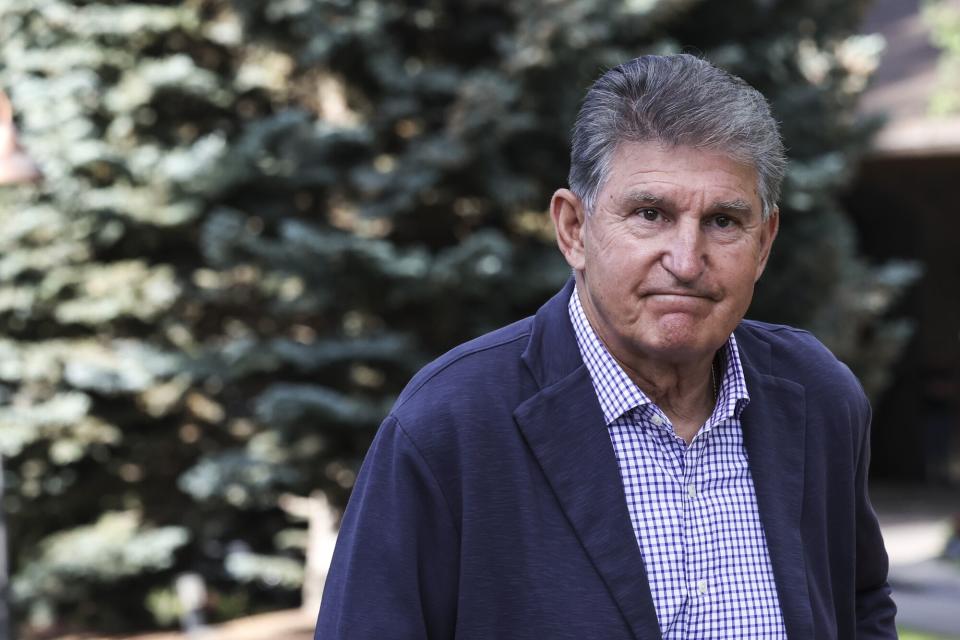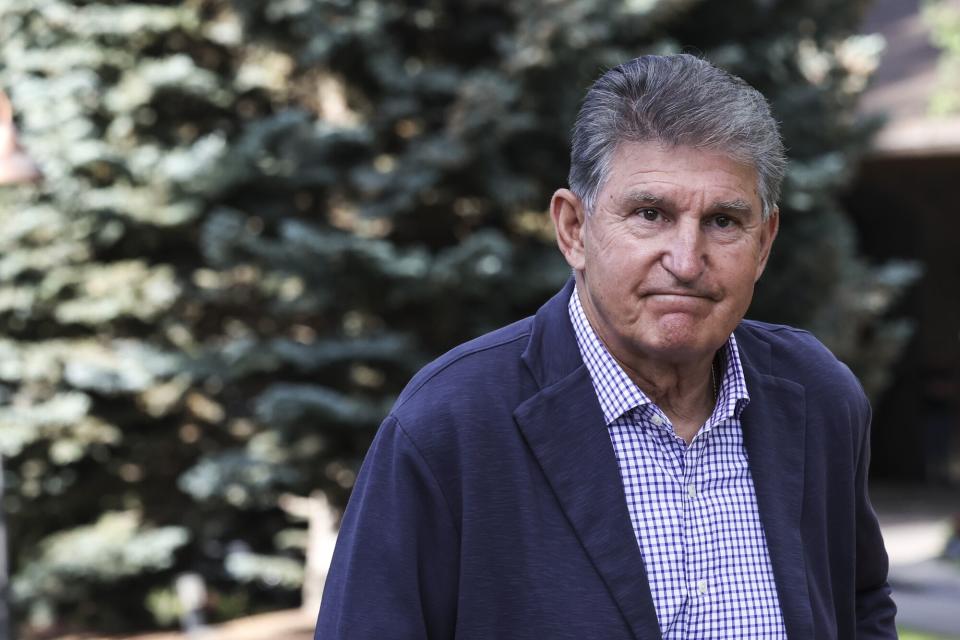Joe Manchin Says He Won’t Run for Reelection in Blow to Democrats
- Oops!Something went wrong.Please try again later.
- Oops!Something went wrong.Please try again later.
- Oops!Something went wrong.Please try again later.
- Oops!Something went wrong.Please try again later.
(Bloomberg) -- West Virginia Senator Joe Manchin announced Thursday he won’t seek reelection, a blow to Democrats’ prospects for keeping the Senate majority in 2025.
Most Read from Bloomberg
An Opioid-Like Drink Is Masquerading As a Wholesome Alcohol Alternative
New ‘Call of Duty’ Draws Harsh Reviews After Rushed Development
Manchin, 76, is widely seen as the only realistic chance for Democrats to keep the seat in Republican-trending West Virginia, which Donald Trump won by 39 percentage points in 2020.
He hinted in his statement at a potential presidential run as a third-party candidate, which risks drawing support away from President Joe Biden’s bid for reelection.
“What I will be doing is traveling the country and speaking out to see if there is an interest in creating a movement to mobilize the middle and bring Americans together,” Manchin said in a statement.
Manchin is an original honorary co-chairman of No Labels, a group that started as a centrist policy group but which is now laying the groundwork for a possible third-party campaign for president. He also participated in a No Labels event in New Hampshire in July, declining to rule out a presidential run as he complained that “There’s no voice for the middle” in US politics.
Manchin has $11.3 million left in his Senate reelection account that he could transfer to a presidential campaign. That sum is enough to kick-start a White House run. No Labels has also been courting donors to fund their effort to get a candidate on the ballot.
No Labels spokeswoman Maryanne Martini in a statement applauded Manchin “for stepping up to lead a long overdue national conversation about solving America’s biggest challenges” and said the organization would make a decision by early 2024 on whether to nominate a presidential candidate.
Democratic leaders had strongly recruited Manchin to run for reelection to the Senate.
West Virginia Governor Jim Justice, who switched from Democrat to Republican during the Trump administration, and conservative Republican Representative Alex Mooney, are running for the GOP nomination for the Senate seat.
An Emerson College poll last month showed Justice leading Manchin by 13 percentage points, 41% to 28%.
Read More: Republican Jim Justice Launches Bid for Manchin Senate Seat
Senator Steve Daines of Montana, who heads Senate Republicans’ campaign arm, offered a succinct response to Manchin’s decision.
“We like our odds in West Virginia,” he said.
Democrats and independents who align with the party hold only 51 Senate seats. So a pickup of a single seat would swing the Senate to Republicans if the party also wins the White House because of the vice president’s tie-breaking vote, or a two-seat pickup if not.
Next year almost all of the competitive seats are held by Democrats, with no Senate Republican running for reelection in a state won by Biden in 2020.
Manchin has often frustrated his fellow Democrats, particularly when he torpedoed Biden’s multi-trillion-dollar Build Back Better bill in 2021 and, later, blocked an effort to weaken the Senate’s filibuster rule to pass other Democratic priorities including a sweeping voting rights package.
But Manchin’s backing proved key to a series of bipartisan deals on infrastructure and many other issues, and he was the principal author of the Inflation Reduction Act, which includes provisions on climate and energy, Medicare prescription drug price cuts, increased tax enforcement and imposed a new 15% minimum tax on corporations making at least $1 billion a year.
Manchin, a staunch advocate of his home state’s coal and natural gas industry, succeeded in winning concessions for fossil fuels in Democrat’s signature climate law, for which he provided the pivotal vote. Among them were generous increased in tax credits for carbon capture, mandates for oil and gas lease sales, and a generous incentive for hydrogen. Manchin also played a key role in putting new limits on the Inflation Reduction Act’s electric vehicle tax credit.
Manchin was also responsible for inserting language in must-pass debt ceiling legislation that deemed approved — after years of legal setbacks — Equitrans Midstream Corp.’s controversial Mountain Valley Pipeline traversing his home state.
--With assistance from Gregory Korte, Laura Davison, Bill Allison and Ari Natter.
(Updates with No Labels comment, additional detail beginning with seventh paragraph)
Most Read from Bloomberg Businessweek
US Veterans Got a Mortgage Break. Now They’re Losing Their Homes
A German Startup Races Google to Develop a Universal Translator
©2023 Bloomberg L.P.




